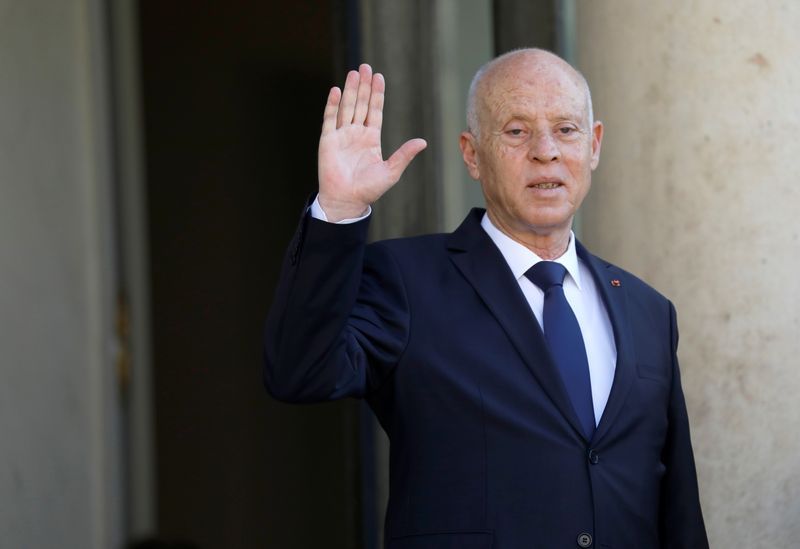
TUNIS (Reuters) – Tunisian President Kais Saied will launch in coming weeks a national dialogue that will include political parties and youth from all regions “to correct the revolution that has deviated from its goals a decade after its outbreak”, the presidency said on Wednesday.
The presidency said the dialogue proposed by the powerful UGTT union seeks economic, social and political reforms as the country is witnessing a wave of protests against bad public services, widespread unemployment and corruption.
Ten years ago, massive protests against poverty, marginalization and unemployment brought down the regime of the late President Zine El Abidine Ben Ali. The Tunisian revolution triggered the Arab Spring uprisings in Egypt, Libya and Syria.
Despite that, Tunisia is an example of peaceful transition in a region struggling elsewhere with violence and upheaval. Later, its economic and social situation worsened and the country became on the verge of bankruptcy and the protests increased.
“The dialogue aims to correct the process of the revolution, which has been diverted from its true path that the people set 10 years ago, which is employment, freedom and dignity.”, the presidency said in statement.
It did not give further details.
Nourredine Taboubi the head UGTT Union which led to reach a consensus between secularists and Islamists in 2013 said this initiative “is a glimmer of hope to correct the process of the revolution”.
UGTT union was among Tunisia’s National Dialogue Quartet that won the Nobel Peace prize in 2015 for helping build democracy in the birthplace of the Arab Spring.
Reporting By Tarek Amara; Editing by David Gregorio
Image: FILE PHOTO: Tunisia’s President Kais Saied waves as he is welcomed by French President Emmanuel Macron (not pictured) before a meeting at the Elysee Palace in Paris, France, June 22, 2020. REUTERS/Charles Platiau


